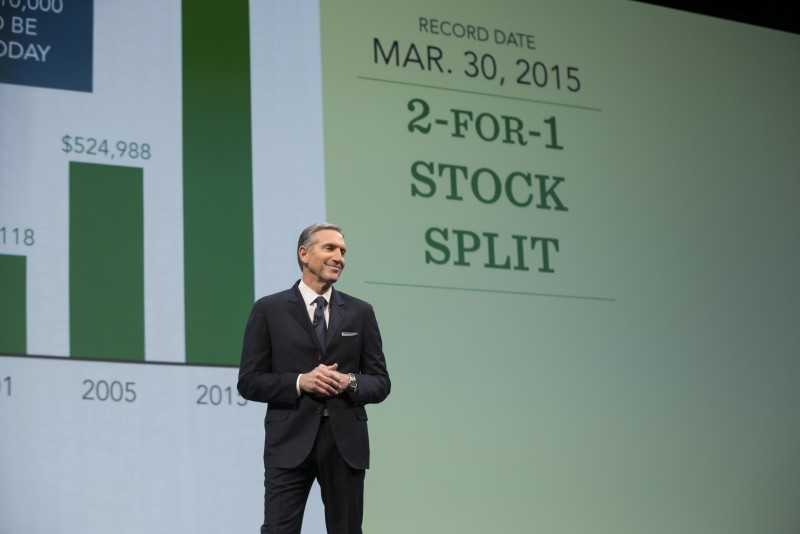by George Anders*
What does Starbucks chief executive Howard Schultz keep in his pockets? Two keys stand out. One unlocks the most lavish Starbucks store in the world: the 15,000-square-foot Roastery. Situated in Seattle’s Capitol Hill neighborhood, it combines an upscale cafe with whirring conveyor belts that ferry packages of freshly roasted coffee before admiring customers. Let Nike have Niketown; Schultz has created a Willy Wonka-style celebration of coffee.
The other key reveals something deeper. It opens the shabby little store on the Seattle waterfront where Starbucks got its start. It’s always 1971 there, with the same rough-hewn bins and counters that defined the brand in the days of the Vietnam War. Nobody has ever modernized the place. “I go there at 4:15 a.m. sometimes, just by myself,” the 62-year-old Schultz tells me. “It’s the right place whenever I need centering.”
Centering? The last we checked, the willingness of billionaire CEOs to recenter themselves was hovering around zero. But that’s Schultz: always the underdog, always blending the personal with the profitable. Since taking charge of Starbucks in the 1980s, he has turned a regional coffee company into one of the world’s top brands.
Sales topped $19 billion in 2015, thanks to Starbucks’ ability to provide food and coffee along with a feel-good environment where friends meet, students do their homework and romances come of age. By delivering what he calls “performance through the lens of humanity,” Schultz has amassed a fortune of nearly $3 billion. Yet in any sustained conversation, he keeps going back to when he was a nobody.
“I’m still this kid from Brooklyn who wanted to fight his way out,” Schultz says. He grew up in the 1960s in subsidized housing, steeped in the anxieties of a father who suffered workplace injuries and couldn’t hold a job. “I didn’t go to an Ivy League school,” Schultz reminds me. “I didn’t go to business school.” Instead of resenting those early deprivations, he treasures them.
Schultz has discovered that America–and, in fact, the whole world–loves an up-from-hardship story. His candor about his beginnings in the gritty Canarsie section helps him strike a rapport with everyone from other chief executives to young black and Latino adults trying to find their first jobs. “Even though I don’t have the same color of skin,” Schultz explains, “I was one of those kids. I could have today been one of those kids.”
















